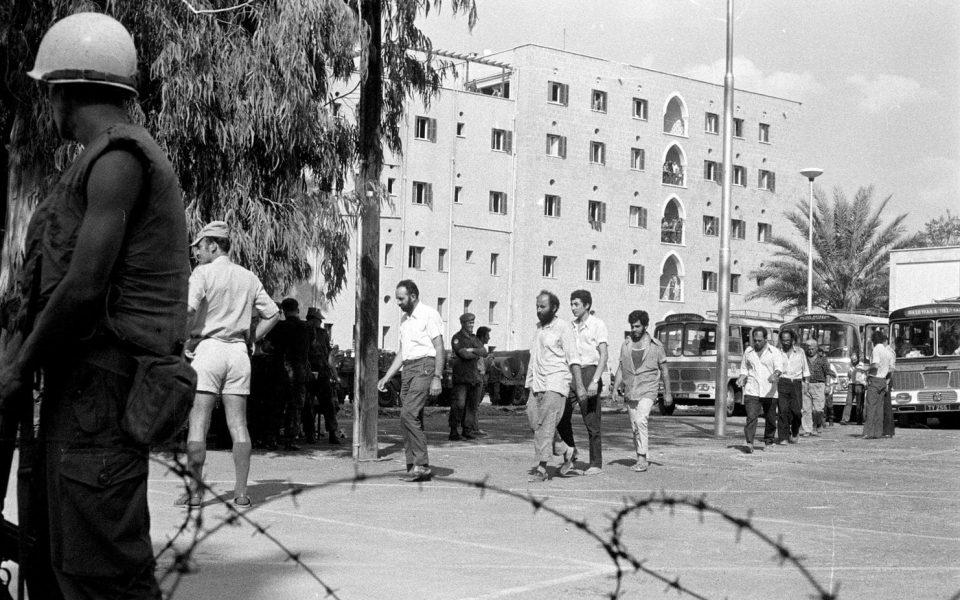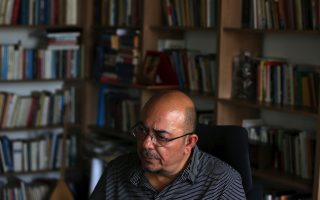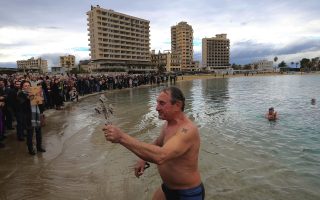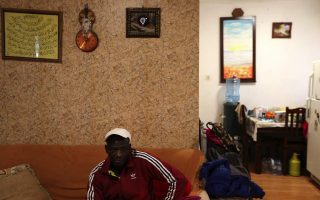Aging grand hotel highlights the ethnic division in Cyprus

With Italian chandeliers still hanging in the lobby, the Ledra Palace Hotel in Cyprus still manages to hold onto a flicker of its old majesty despite the shell craters and bullet holes that scar its sandstone facade.
It’s been 45 years since the pitter-patter of glitterati high-heels on the hotel’s floors was replaced by the thud of soldiers’ combat boots.
During the war in the summer of 1974 that cleaved Cyprus along ethnic lines, United Nations peacekeepers took over the hotel, instantly turning it into an emblem of the east Mediterranean island nation’s division.
After countless rotations of soldiers used the hotel as a barracks, the United Nations says the aging building’s rooms are no longer suitable for military housing. Renovations to bring the Ledra Palace up to modern safety standards are too costly, so the upper two floors of the venerable building now sit empty.
But UN spokesman Aleem Siddique says the Ledra Palace will continue to play a key role in the peacekeeping efforts in the buffer zone that cuts across Nicosia, the capital, and which divides the breakaway Turkish Cypriot north from Greek Cypriots in the internationally recognized south.
Although the 160 personnel posted to the sector have been relocated to prefabricated units behind the Ledra Palace, Siddique says the hotel will remain a base for the soldiers whose task it is to patrol the buffer zone and prevent a flare-up between opposing soldiers – who in some areas are only meters (yards) apart.
Moreover, the hotel’s bottom two floors will still be used for events fostering trust and building communications between Turkish Cypriots and Greek Cypriots. The hotel also houses the joint Committee on Missing Persons, a UN-led body of Greek and Turkish Cypriots who are trying to locate the remains of more than 1,000 people from both sides still listed as missing.
“We still have an important job here every day,” says Siddique.
When it was finished in 1949, the 240-room Ledra Palace hotel was the best Cyprus had to offer. Located near the center of Nicosia’s medieval heart and its surrounding Venetian-built, 16th-century walls, the hotel’s luxurious ballroom, restaurants and bars were the place to go, even for Hollywood’s visiting elite.
The hotel was also the venue for many important meetings that helped shape the divided island’s history, including the drafting of the constitution of Cyprus after it gained independence from British colonial rule in 1960. The hotel also became a nexus for journalists chronicling early Mideast troubles such as the 1956 Suez crisis.
Conflict, however, changed the hotel’s destiny.
Briefly, at the outbreak of strife between the two communities in December 1963, about 15 British troops moved in to keep the peace between the warring sides. But 11 years later, the Ledra Palace was caught up in the middle of fierce combat between Greek Cypriot national guardsmen and Turkish forces that invaded in the wake of a coup by supporters of uniting Cyprus with Greece.
As fighting subsided, Canadian peacekeepers moved into the hotel, which now straddled the buffer zone. Greek Cypriot and Turkish army guard posts still flank the hotel’s outer perimeter, as do derelict homes abandoned amid the fighting.
In 1993, British soldiers moved in when Canada pullout of the UN peacekeeping force. Ensconced within the island’s buffer zone behind barbed wire, the Ledra Palace was beyond the gaze of most Cypriots. That changed in April 2003, when a political thaw between the two sides enabled the opening of a crossing point.
And so, many years later, the 150-meter (165-yard) walk between the Greek and Turkish Cypriot control points in Nicosia remains a virtual time-warp to those scorching July days of 1974, when bullets and mortar shells left their marks on the Ledra Palace Hotel. [AP]





